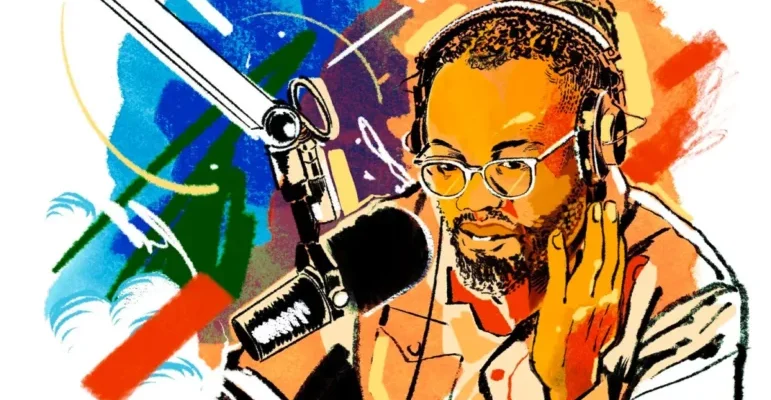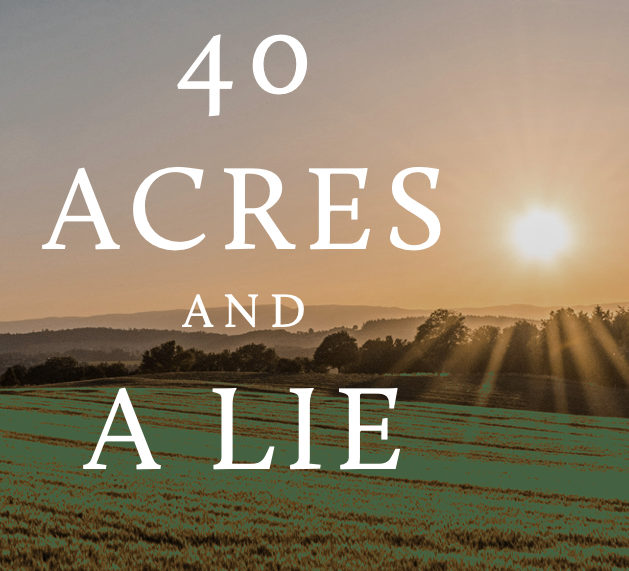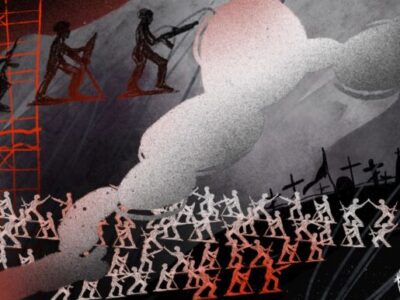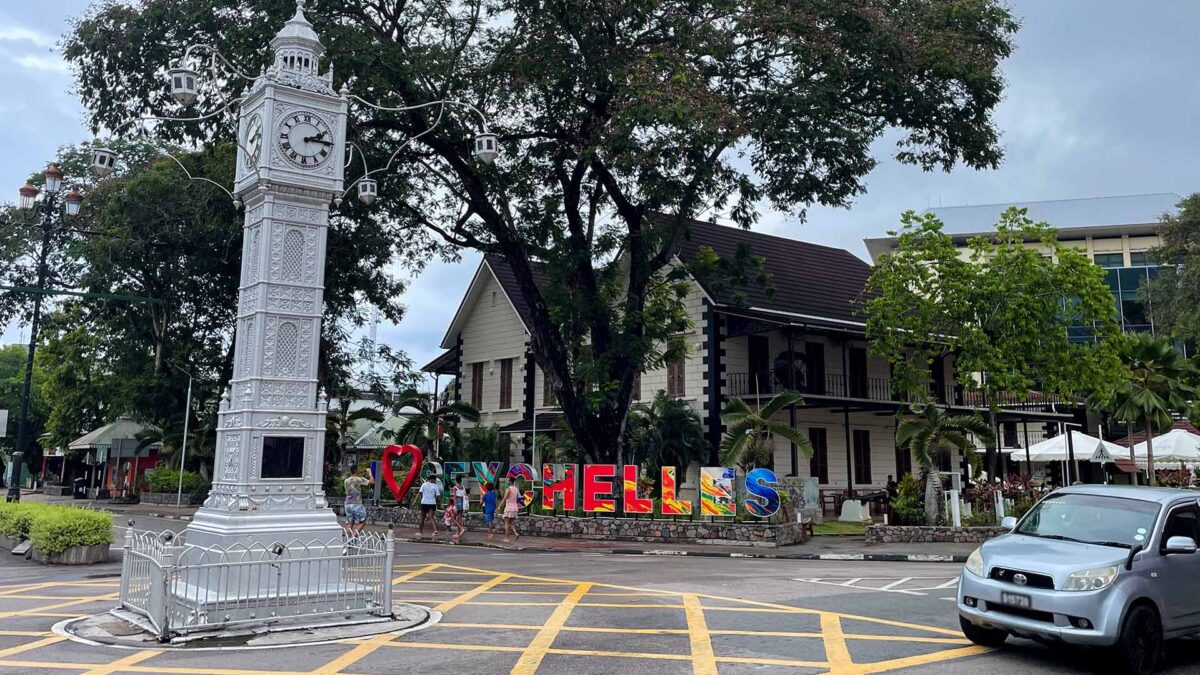
Reveal is an investigative radio show and podcast produced by the Center for Investigative Reporting in the United States. It is heard by more than one million people each week across more than 500 public radio stations. The stated mission is to “hold the powerful accountable by reporting about everything from racial and social injustices to threats to public safety and democracy.” This is the transcript of a podcast produced by the team to celebrate 10 years in the business, and is republished with permission. You can listen to the original here.
Jonathan Jones: After we did that series, various people have reached out about suspicious deaths, and I’ve looked into some of them, and some of them you look at and you see that there’s hundreds of pages of police investigation files. They talked to 44 people. They followed every lead that the family gave them. None of the sort of rigorous investigations occurred at any point for the Johnson family, and so it’s not as if everybody has the same experience from the local law enforcement, the Department of Justice Civil Rights Division, they all failed this family and in some ways then they failed America and that really sits with me and it makes me very angry.
Al Letson: Examining race in America is something that’s important to us at Reveal. This nation has failed to deal with its history of racism. It’s messy and hard to look at and doesn’t serve some people’s narrative about the country. That’s always been the case, but right now we’re at a flashpoint with the speed of misinformation and the obscuring of the past has increased exponentially. Books about race are being banned from school libraries and some states have made it nearly impossible to teach Black history in public schools, that’s why it’s even more important to tell those stories.
Listener: Hi, Reveal. My name is Susie. I absolutely love your program. And your podcasts, I have learned so much from them. Thanks for having an awesome show.
Just recently, during Black History Month, we revisited our three-part series called 40 Acres and a Lie, a historical investigation into a government program that could have changed the trajectory of Black Americans coming out of slavery. Today we refer to the program as 40 Acres and a Mule, and we think of it as a promise that was never kept, but our investigation found that Black Americans were actually given land only to have it taken away. Our reporting took us to Edisto Island, South Carolina to have hard conversations. The kind that leave you thinking long after the mics go off.
Nadia Hamdan: Do you feel like descendants of the formerly enslaved who have worked land on these plantations on Edisto Island are warranted some kind of payment or reparations for the time they spent enslaved?
Jenks Mikell: No
Nadia Hamdan: No?
Jenks Mikell: No
Nadia Hamdan: Why is that?
Jenks Mikell: Anybody in this country who wants to do better has the opportunity to do it. There are many, many, many Black folks around this country that have been very, very successful. Now, you explain to me why.

40 Acres and a Lie was a collaboration between Mother Jones, Reveal, and the Center for Public Integrity. The investigation explored a government program that gave formerly enslaved people land after the Civil War, only to take nearly all of it back a year and a half later. Image: Screenshot, Mother Jones
Al Letson: That’s Jenks Mikell speaking with Reveal producer Nadia Hamdan. Jenks lives on a sprawling, beautiful former plantation that was passed down to him from his great-great-grandfather, a wealthy slave owner from South Carolina. It’s part of his generational wealth, but as we learned, for a brief moment, some of that land was given to formerly enslaved people. We also know the federal government actually gave them land titles. We found names of more than 1,200 Black Americans who were given land titles across the coasts of Georgia and South Carolina. There, Black folks were trying to build their own communities when it was taken away and given back to the former enslavers like Jenks’ great-great-grandfather.
Nadia Hamdan: I mean, I guess I’m trying to understand how –
Jenks Mikell: It’s all up to them.
Nadia Hamdan: … hundreds of –
Jenks Mikell: We keep giving away stuff, that’s all we’re going to be able to do is give away because people don’t want to work because they don’t have to work because all we’re doing is giving them freebies. Nobody ever gave me anything other than this, and I had to sweat bullets to keep it.
Nadia Hamdan: I respect that, I just, there’s no denying that hard work has gone into your life, but I think even you just said, “I haven’t been given anything, but I was given this.” And so is it not fair to at least acknowledge that there has been some privilege in having a hold of this land?
Jenks Mikell: Did they not have land?
Nadia Hamdan: They meaning Black people?
Jenks Mikell: Yeah, they had it.
Nadia Hamdan: And then it was taken away.
Al Letson: The series 40 Acres and a Lie was a partnership with the Center for Public Integrity and Mother Jones, and it recently won a prestigious duPont-Columbia Journalism award. Nadia spent two years on this project as the lead producer going through hour upon hour of tape. Working at Reveal for a decade now, I have heard some really great stories and heard a lot of great tape that ends up on the cutting room floor. Sometimes your good stuff, it doesn’t fit what you’re trying to do or you’re alone and you just have to figure it out and I feel like the cuts that you guys had to make, oh, some cuts were brutal. The cut that did not make it that I think about all the time-
Nadia Hamdan: It’s the same one I think about, I’m sure.
Al Letson: Yeah, the bricks, right?
Nadia Hamdan: Mm-hmm, mm-hmm.
Al Letson: The bricks.
Nadia Hamdan: The McLeod Plantation, which is in Charleston, South Carolina, it’s a plantation unlike many other plantations. You walk and take a tour of the plantation from the perspective of the enslaved, and so we met a woman named Toby Smith who’s a historian, and Toby was our tour guide. She stopped us at a wall, it was just a brick wall.
Toby Smith: And they had to turn these bricks over because you can’t put wet bricks in the kiln and sometimes the bricks would be too heavy, and they would squeeze too tightly, and it would leave finger marks like these, these are some of our children.
Nadia Hamdan: There were small fingerprints in the brick and she shared with us that they had found out that those were the fingerprints of small children. Sorry, I’ve never talked about this before and it’s making me emotional because small children, small enslaved Black children were also the ones who had to hold the brick and form the brick with their own hands.
Toby Smith: Children were used in every single horrific way possible, bought, sold, raped, abused, beaten, lynched, and hung. Everything that happened to adults happened to children, and we have to reconcile ourselves to that.
Al Letson: That’s the hard part, reconciling the past with the present. While none of us were alive then, we still have to deal with what’s left, just like the fingerprints in the bricks.
As we were finishing this series, our partner, Public Integrity, went through some serious turmoil. The nonprofit news organization laid off most of its staff. Reporters and editors who originally brought us the 40 Acres story lost their jobs.
Nadia Hamdan: It was incredibly difficult to watch these reporters you’ve been working on this story so deeply with go through that. This is kind of the sad reality of the industry we’re in right now. It’s really fragile right now.
Al Letson: Journalism is being challenged in ways we haven’t seen before. About 8,000 people have been laid off from news jobs in the past two years alone. With President Donald Trump back in the White House, major news networks and public media are both under attack with lawsuits and threats to pull broadcasters licenses and calls to end funding for NPR and PBS, but we’re still here and we aren’t going anywhere. Someone has to be the voice of the little guy, to speak truth to power, to meet people where they are and take you with us.
Speaker 10: The town of Alamogordo comes out of the desert kind of all of a sudden.
Speaker 11: Where am I right now?
Speaker 12: On one side…
Speaker 11: It is the Blue Moon Hookah Lounge in Dearborn Heights.
Speaker 13: You pull into a parking lot at Barton Springs, a natural swimming hole.
Speaker 14: We’re so deep in the mountains, there’s no GPS signal. You feel like you’re driving into the clouds.
Al Letson: Talking to my former and current colleagues and hearing old shows, it really reinforces what Reveal means to me. A good friend of mine, a former editor of Reveal, sums it up perfectly. He used to say, “Investigative journalism is really a hopeful enterprise. Yes, we uncover bad things, but we do it with the hope that the knowledge will create change.” And he was right. Our investigations have and will continue to make change because that’s what we do. Our job is to shine a light and declare that facts are facts and the truth is true. We’re going to keep revealing as long as you keep listening.















